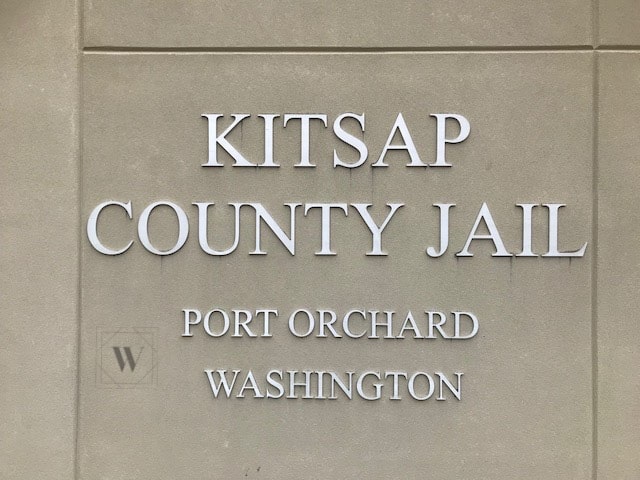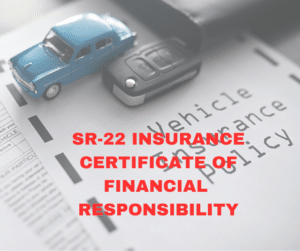
Staying out of jail is the primary goal for most people facing a DUI or any criminal charge. The good news is that an experienced criminal defense attorney can keep most clients out of jail if the defendant seeks legal counsel early enough in the case.
Under the ethics rules, no criminal defense lawyer can make a guarantee that your case will be dismissed or that you won’t face jail time but, in most misdemeanor cases, a very experienced defense attorney can give you a good guess as to whether you will be serving time in jail or be taken into custody at your Arraignment.
There are a few scenarios where you could be taken to jail at Arraignment. These scenarios vary based on arrest and events immediately following your arrest. Almost everyone will fit into one of these three scenarios.
Criminal Defense Cases In Washington
What You Need To Know About DUI Charges In Washington
The most common situation is an arrest followed by booking into jail and bailing out
When an individual is arrested for a DUI, the law enforcement officer will almost always book the individual into jail. Bail on a first offense DUI with no aggravating factors is usually $5,000. As the person bails out, the jail will give them a court date for their arraignment. If the person was arrested on a Friday or over the weekend, the date will usually be on the following Monday. If the individual was arrested on a weekday, the arraignment date is usually the next day, but not always.
At the arraignment, the Court will assess the bail and whether the bail amount is appropriate. Typically, if bail was set at or near $5,000, the Court will allow the individual to remain out “on bail posted” meaning that they will not need to be rebooked and post additional bail.
This does not hold true if the individual has a 2nd DUI and the officer who booked the individual was not aware of the prior DUI. In that circumstance, the charging Prosector will see the prior DUI (even if it is out of state) and likely request that the Court increase the bail to something much higher than the $5,000. Typically, this number is between $10,000 and $50,000. The number will be higher the closer the prior DUI is in time.
The second most common scenario is when an officer arrests you for DUI and gives you a date to appear in Court but does not book you into jail
Sometimes an individual is arrested and the officer, for whatever reason, does not book the individual into jail. This is more common in small cities, like Poulsbo. Using Poulsbo as an example, the Officers complete the process and then typically allow you to find a ride home. They will provide you notice of an arraignment date, which is mandatory. Since Poulsbo only has court on Wednesdays, your arraignment should be the Wednesday following your arrest. You are required to appear on that date.
In this scenario, you typically are not going to jail at your arraignment but there are some exceptions. You are safe (meaning you will most likely not go back to jail at arraignment) if:
You have no prior DUIs
Your blow was not shockingly high (like over a .2)
There was no accident and the stop was for something benign (like speeding)
You don’t have numerous FTA’s (failures to appear) on your record
You were not driving on a suspended license, or in violation of an ignition interlock order
And, lastly, there were no previous Court orders from any Court ordering you not to consume alcohol
If none of these six factors are present, the Judge will most likely PR you (meaning release you on your personal recognizance). There will be conditions placed on you (such as do not consume alcohol) but you do not need to post bail. If one or more of the above conditions are present, you need to anticipate that the City Prosecutor will request that you be taken in on bail. You will need to be prepared with arguments to persuade the Judge to not impose the bail that the Prosecutor is requesting.
Finally, the least common scenario is when you are arrested but no Arraignment date is given
Occasionally, there are DUI arrests where a person is processed for DUI but they are not given a Court date. This most typically happens when a person is under suspicion for DUI based on a controlled substance rather than alcohol. When an officer suspects impairment on the road side, the officer’s first response is to determine if alcohol is a factor through the use of a portable breath test (PBT).
When a person blows 0.00 on the “PBT” and the officer still believes that the individual is impaired, the detention escalates to a more formal procedure where the officer may need a warrant to draw the blood of the suspect. At this point, the stop has escalated, and it can go one of two directions.
The officer will ask you for your consent to give a blood sample, or if you refuse to consent to give blood, the officer will request a warrant to take your blood (over your objection). Judges will typically grant the officer’s request and sign a warrant allowing the officer to utilize the staff of a hospital or ambulance to draw blood. In both of these scenarios, a blood sample is obtained by the State.
Once the blood is drawn, it is sent to the Washington State Crime Lab. The current backlog at the Crime Lab is roughly 15 weeks. This is why an arraignment date is not provided, as in the first two scenarios. The State can’t charge an individual when the blood result will not be available to be used as evidence in a trial for roughly 15 weeks .
All individuals have a Constitutional right (if out of custody) to be tried within 90 days from the date of arraignment, and the Crime Lab is about 105 days out (15 weeks). Consequently, the State does not charge the cases (or have arraignments) until the blood result is received from the Crime Lab. This way, they do not burn up any “speedy trial” time.
The benefit of the delay in charging is that, once your arraignment occurs, the Judge will usually release you on your own recognizance if you have had no subsequent alcohol-related offenses during the 15-20 weeks.
We tried to cover the three most typical scenarios but all cases are different. Reading an article is no substitute for an in-person conversation with legal counsel. Give our office a call if you have any questions and we will do our best to keep you out of jail at your arraignment.
If you are facing a criminal charge in Kitsap County or Thurston County, we can help 7 days a week. 360-792-1000

Get help now
Whether you choose to handle your case alone or engage the Witt Law Group, being informed and prepared is essential. Early involvement of an attorney can significantly impact your chances of a fair recovery, allowing you to focus on healing while we handle negotiations with insurance adjusters to secure fair compensation for your injuries.




